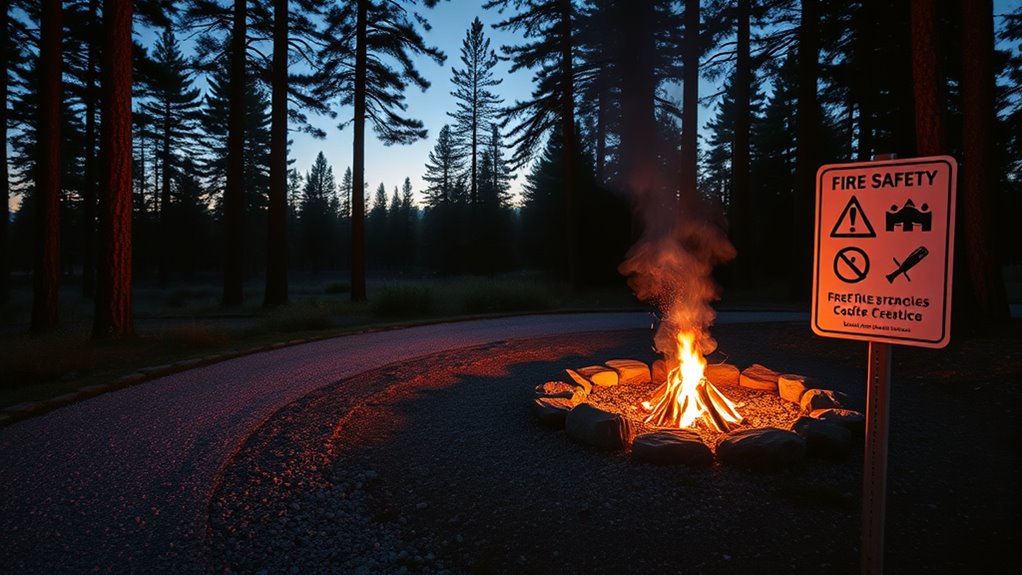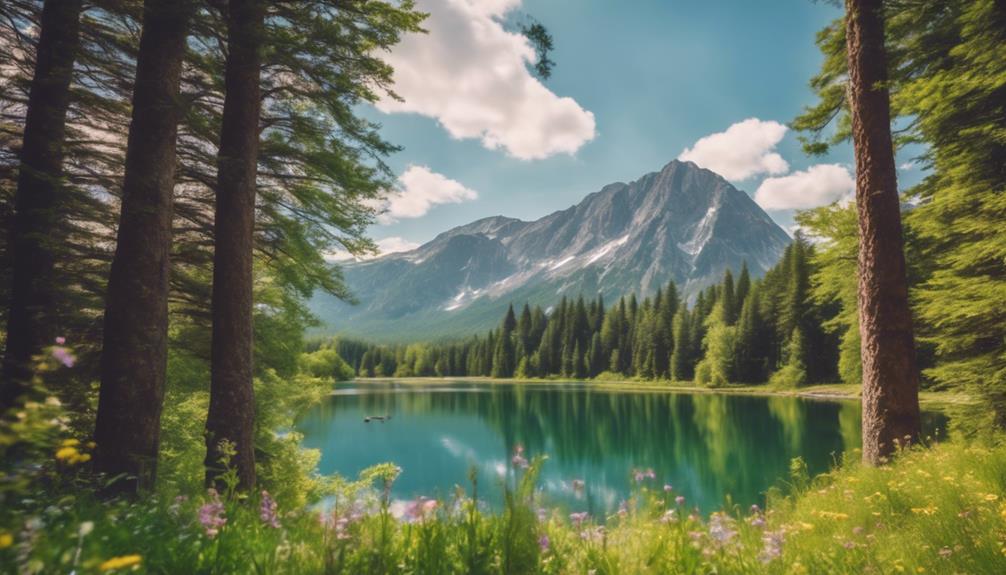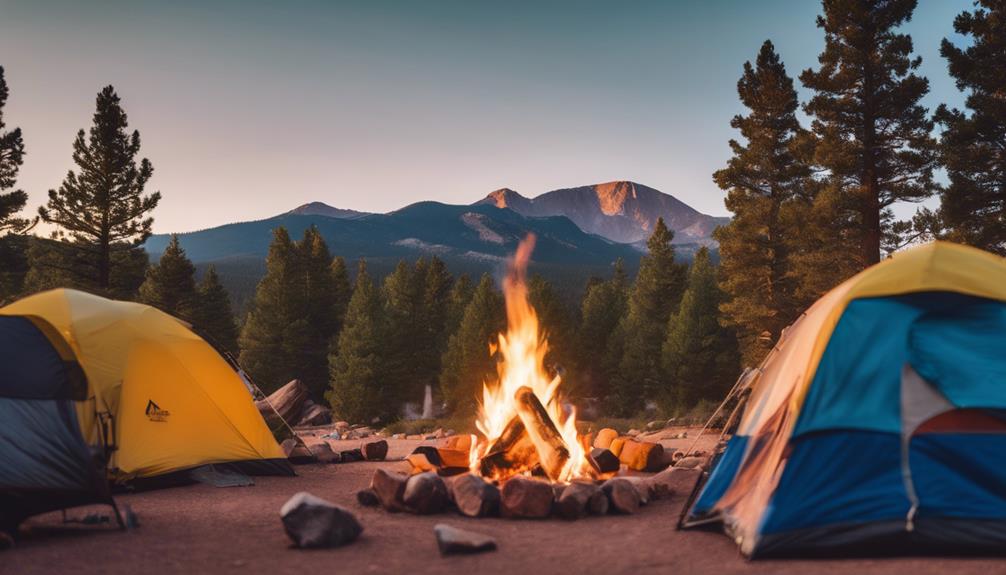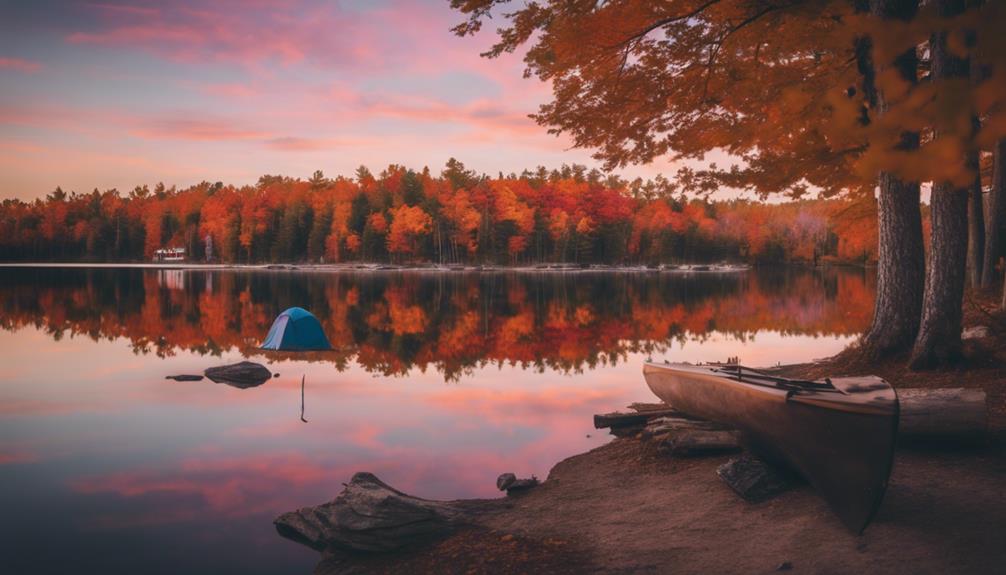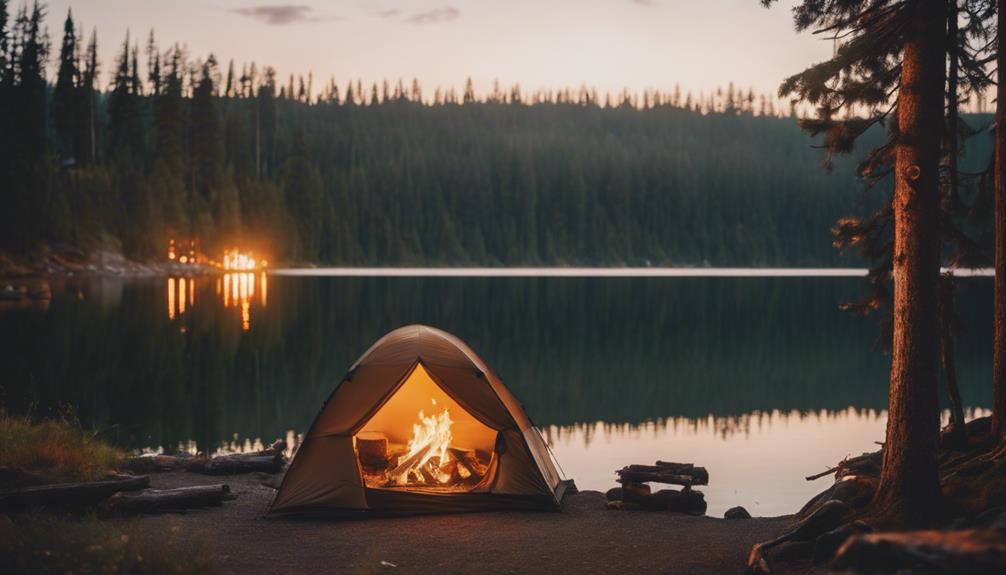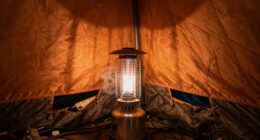To stay safe and legal during outdoor fires, always check fire restrictions before you start. Use designated fire rings or portable stoves on stable, non-flammable surfaces away from dryness and overhanging branches. Never leave a fire unattended and make certain it’s fully extinguished when you leave. Follow local regulations diligently, store equipment properly, and keep firefighting tools nearby. Continuing this guide will help you understand all essential safety and regulation practices for responsible campfire use.
Key Takeaways
- Always check local fire restrictions and bans before starting a campfire or using portable stoves.
- Use designated fire rings or pits and never leave fires unattended or partially extinguished.
- Set up portable stoves on stable, non-flammable surfaces away from dry grass and overhanging branches.
- Keep firefighting tools like extinguishers or water nearby and follow manufacturer instructions for safe use.
- Follow environmental and legal regulations to prevent wildfires and preserve natural areas.
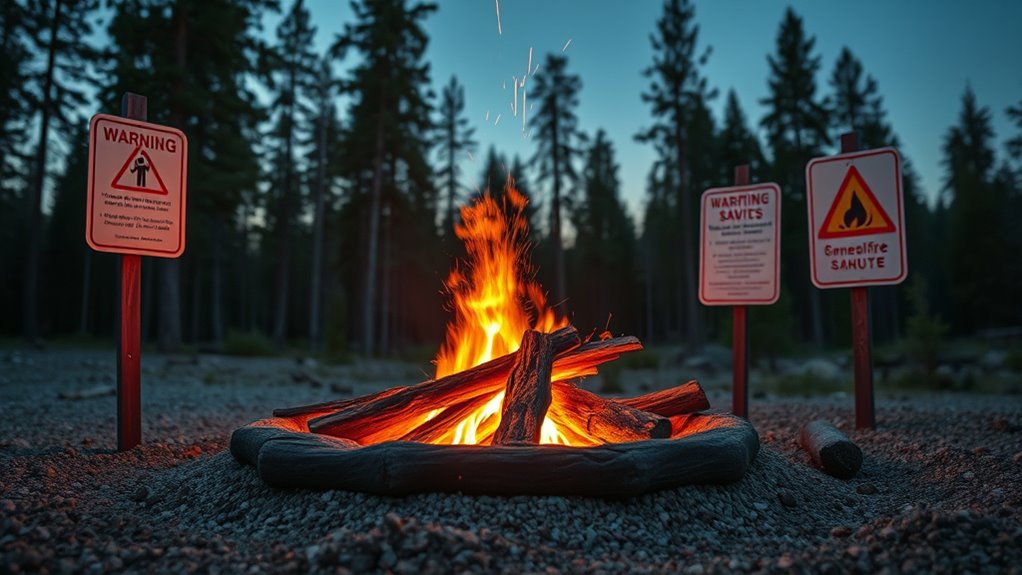
Campfire safety is essential for preventing wildfires and ensuring a safe outdoor experience. One of the most critical steps you can take is to stay informed about current fire bans. Fire bans are enacted by authorities when conditions are dry and windy, considerably increasing the risk of wildfire spread. Ignoring these bans not only jeopardizes your safety but also endangers the environment and other visitors. Before setting out, check with local fire departments, park services, or official websites to confirm whether fire restrictions are in place. If a fire ban is active, you must refrain from building campfires, including using portable stoves, which are often prohibited during such periods. Failing to adhere to fire bans can result in hefty fines, legal consequences, and devastating wildfires that threaten lives and property.
When fire restrictions are lifted, it’s equally important to follow regulations regarding portable stoves. These devices are generally considered safer alternatives to open fires because they produce less heat and are easier to control. However, even with portable stoves, you must use them responsibly. Always set up your stove on a stable, non-flammable surface, away from overhanging branches, dry grass, or combustible materials. Keep a fire extinguisher or a bucket of water nearby in case of emergencies. Never leave a portable stove unattended while it’s in use, and ensure the flame is fully extinguished before leaving the site. Properly storing and maintaining your stove can prevent accidental fires caused by equipment malfunction or improper handling. Additionally, understanding home essentials like fire safety equipment can enhance your preparedness in case of emergencies.
Additionally, always verify local regulations regarding campfires and portable stoves before your trip. Regulations vary by region, and ignorance of the law isn’t an acceptable defense if you violate fire safety rules. Many parks and wilderness areas have designated fire rings or pits where campfires are permitted, and these must be used exclusively. If no designated areas are available, a portable stove may be your safest option—provided it’s allowed. Remember, even when permitted, you should keep your fire contained, never let it grow beyond control, and fully extinguish it when finished. Using a combination of awareness, proper equipment, and adherence to regulations minimizes risks and helps preserve the natural beauty of the environment for everyone.
Frequently Asked Questions
Can I Have a Campfire During High Fire Danger Periods?
You should not have a campfire during high fire danger periods, as fire ban policies typically prohibit open flames for safety reasons. Always check current fire ban policies and adhere to campfire permit requirements before attempting to light a fire. Ignoring these regulations can lead to severe penalties and increased wildfire risk. When in doubt, opt for a safe alternative, like a portable stove, to ensure your safety and conformity.
What Are the Penalties for Illegal Campfires?
Breaking the fire safety rules is like playing with fire in a fireworks show—you risk serious legal consequences. Penalties for illegal campfires can include hefty fines, mandatory community service, or even jail time, depending on the severity of the violation. Authorities enforce these laws strictly to prevent wildfires. Always respect local regulations to avoid these penalties and protect the environment and community from preventable disasters.
How Do I Properly Extinguish a Campfire?
To properly extinguish a campfire, first pour water over the fire, ensuring all embers are soaked. Use a fire extinguisher technique if available, sweeping from the outside inward. Stir the ashes with a stick to expose hidden hot spots, then add more water until everything is cool to the touch. Always use a safe fire pit, and confirm the fire is completely out before leaving to prevent wildfires.
Are There Specific Regulations for Campfires in National Parks?
Did you know that over 90% of wildfires are caused by human activity, making regulations essential? In national parks, fire ban policies are strictly enforced, often requiring you to obtain a campfire permit before lighting a fire. These rules help prevent wildfires and protect ecosystems. Always check park-specific regulations, adhere to designated fire areas, and follow permit guidelines to stay safe and legal during your visit.
Can I Burn Trash in My Campfire?
You shouldn’t burn trash in your campfire because it creates a fire hazard and complicates proper trash disposal. Burning garbage releases harmful toxins and can ignite unintended fires, risking wildlife and natural resources. Always pack out your trash or dispose of it in designated containers. Prioritize fire safety by avoiding trash burning, and guarantee your campfire remains controlled and environmentally responsible.
Conclusion
By respecting campfire safety and adhering to regulations, you become the guardian of the night’s gentle glow. Think of your fire as a delicate ember—powerful yet fragile—requiring careful stewardship. When you follow the rules, you guarantee that this symbol of warmth and camaraderie doesn’t turn into a destructive force. Stay vigilant, act responsibly, and let your campfire be a beacon of safety and respect, illuminating your journey without casting shadows of danger.

